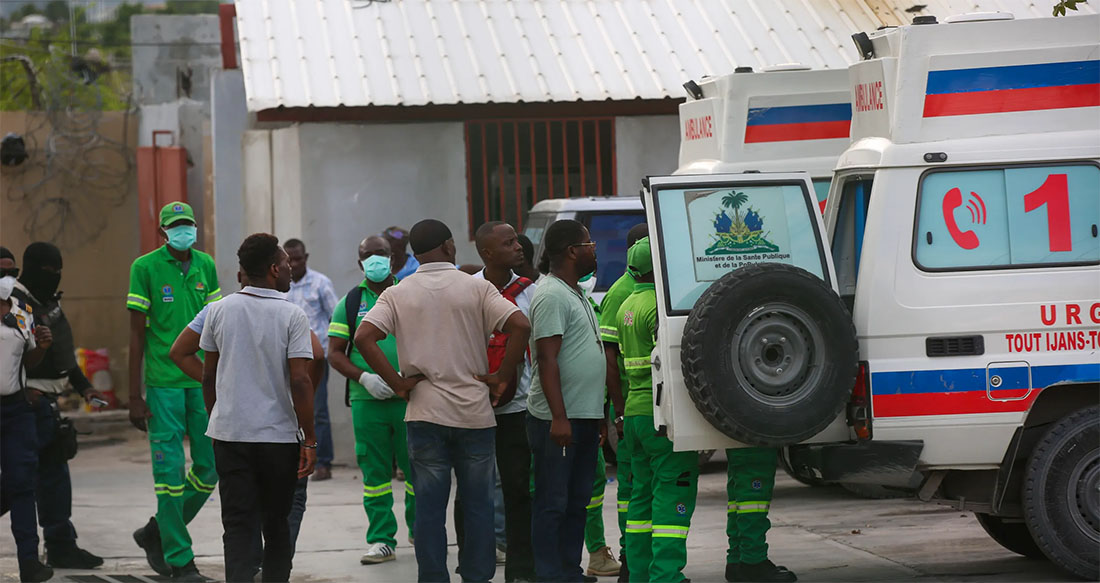Photo Credit: Getty Images
A tragic turn of events unfolded on the eve of Christmas , when gunmen stormed Haiti's largest public hospital in Port-au-Prince, killing three individuals, including two journalists and a police officer. The victims were among a group gathered to mark the reopening of the State University of Haiti Hospital, locally known as General Hospital.
The attack, claimed by the Viv Ansanm gang coalition, highlighted the deepening crisis in Haiti. "This heinous act...constitutes an unacceptable assault on the very foundations of our society," stated Haiti's Prime Minister's Office. Leslie Voltaire, head of Haiti's transitional presidential council, condemned the attack, assuring that it "will not remain without consequences."
Eyewitnesses described a harrowing scene. Jephte Bazil, a journalist from Machann Zen Haïti, recounted how the gunmen ambushed the crowd. "They shot at us. Some went down...I'm still in shock," he said, blood from injured colleagues splattered on his clothes. Video footage revealed bodies lying in pools of blood, journalists scrambling for cover, and bullets ricocheting off hospital walls.
This attack is the latest in a series of gang-led atrocities in the country. According to a recent United Nations report, 207 people were brutally killed in Cité Soleil earlier this month. The victims, accused of witchcraft, were executed with machetes before their bodies were burned or thrown into the sea. The UN noted that gang-related violence has claimed over 5,358 lives in Haiti this year alone, with more than 17,000 casualties since 2022.
Haiti's health care infrastructure, already crippled by gang activity, suffered another blow last week when Bernard Mevs Hospital, the country's only trauma center, was ransacked and burned. Dr. Oscar Barreneche of the Pan American Health Organization described Haiti's healthcare system as being "on the brink," with escalating violence further limiting access to critical services.
The journalists killed in the hospital attack were identified as Jimmy Jean of Moun Afe Bon and Marckendy Natoux of Voice of America. Both were invited to cover the reopening of the hospital, a symbolic gesture of resilience in a gang-occupied city. Tragically, their presence became a testament to the risks journalists face in documenting Haiti's ongoing turmoil.
Haiti's efforts to stabilize remain tenuous. Despite the deployment of Kenyan police as part of a multinational force, gang control persists over an estimated 85% of Port-au-Prince. The assassination of President Jovenel Moïse in 2021 marked the beginning of this relentless spiral into violence, leaving Haiti's future precariously uncertain.


